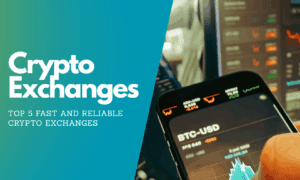A review of Malaysia’s crypto market by Market Haven Senior Account Manager David Specter shows that exchanges are required to comply with various regulatory requirements. Specifically, they must register with the securities commission and get a license to continue operations in the country. The purpose of the regulations is to ensure that the people managing these exchanges are well-equipped to handle anti-terrorist financing and anti-money laundering requirements.
But despite issuing a warning back in 2019, many exchanges are trying to operate without a proper license. This puts investors and users at risk of using an illegal exchange. When this happens, account holders can’t seek protection from regulators because the exchanges weren’t licensed in the first place.
Malaysian Authorities Crack Down on Illegal Exchange
Recently, Malaysian authorities cracked down on what they considered to be an illegal crypto exchange. The international USDT-powered project was offering services to users without a proper license.
For those who don’t know, USDT, commonly owned as tether, is the crypto market’s biggest stablecoin by market capitalization. Many crypto users consider these secure investments because the value of each USDT token is tied to the US dollar itself.
In the crackdown, Malaysian police arrested forty people running operations at the exchange, which allowed Chinese citizens to trade their USDT tokens for cash. Oriental Daily, a Malaysian news outlet, explained that the crackdown was carried out by the Malaysian police’s commercial crime investigation team, as well as the National Financial Crime Center.
The offers stated that they dismantled the exchange entirely, which was also accused of acting as an illegal online casino, offering gambling services like betting on sports. According to the detectives, the exchange had been the subject of an investigation for quite some time.
In this case, the exchange would operate by receiving money from mainland Chinese citizens, and they would convert the money into Tether tokens. Then, they would transfer them back to people in China. There’s evidence that the group has been operating in Malaysia without a proper license.
Strict Regulations Require Exchanges to Register and Acquire License
Under the Capital Markets and Services Act of 2007, all such service providers are required to register with the securities commission. Any exchanges that fail to comply face consequences like closure or a penalty.
In May, Malaysia’s Securities Commission ordered the popular crypto exchange, Huobi Global, to stop its operations in the country. The exchange was also ordered to disable its mobile applications available on Google Play or the Apple Store. Similarly, it was also required to disable its website in the country.
According to Market Haven Senior Account Manager David Specter, current Malaysian regulations for crypto, while tough, can become restrictive over time. While it’s great that the SC was able to shut down an exchange operating illegally, it will need to adopt more flexible rules to satiate the appetite for crypto investment in Malaysia.
Hopefully, trends in the US, like the recent verdict that Ripple’s XRP is not a security, will have an effect on crypto regulation in the country. It will help start a conversation towards protective measures that can help users without stifling innovation.



































